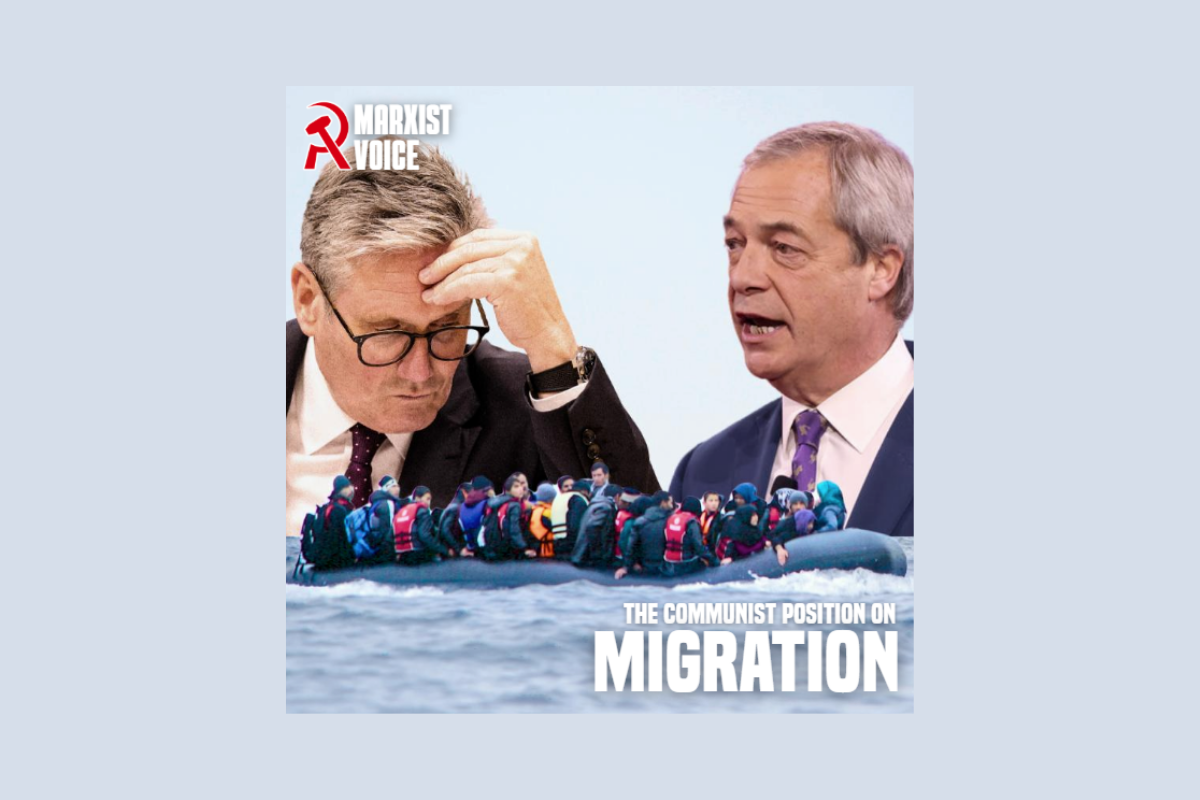Under pressure from the mass movement, Sadiq Khan has launched a review into London monuments. Beyond these gestures, however, nothing has been done to challenge the racism in the Metropolitan Police. Racist police practices continue unabated.
In the wake of the toppling of the Colston statue by Black Lives Matter protestors in Bristol, Sadiq Khan has launched a review of London monuments with links to the slave trade. The London Mayor launched his ‘Commission for Diversity in the Public Realm’ mere days after Colston found himself sinking to the bottom of Bristol harbour.
Already a statue of the slave-owning businessman Robert Milligan has been removed from London’s docklands. That such rapid action is being taken after more than a century of these blood-soaked monuments besmirching our streets shows the power of a genuine mass movement.
Yet Black Lives Matter is about so much more than statues. Although the movement started in the US, ‘the UK is not innocent!’ is a common refrain at protests in Britain – and this is undoubtedly true.
When it comes to the systematic oppression of black people, the UK is guilty as sin. But beyond nice words and empty gestures, what is Sadiq Khan actually doing to address this? The sad truth is very little.
Racism in the Met
As Mayor of London, Sadiq Khan has direct control over the Metropolitan Police – a reviled body that was found to be ‘institutionally racist’ in the wake of the murder of Stephen Lawrence more than 20 years ago. Sadly very little has changed in the intervening years.
The fact that the Met remains racist to the core was underlined when it was revealed that black Londoners were twice as likely to be fined for breach of lockdown rules than their white counterparts. This should come as no surprise, given that black people are also 40 times more likely to be stopped and searched than white people in the UK.
Thanks to the spotlight shone by the BLM movement, a host of racist policing incidents in recent weeks have come to light that in ‘normal times’ would have gone unnoticed and unreported.
A black off-duty ambulance worker was arrested outside his own home on suspicion of drug possession. No drugs were found. A black man smoking a cigarette outside his own house was searched by police, and when he started to film the interaction he was violently handcuffed and left in a cell for more than four hours without medical attention. He hasn’t been charged with anything and is now suing the police for his injuries. And a 62 year old black man was shot with a taser by police in his own home and toppled down the stairs, risking serious injury.
Rapper Wretch 32 shares a heart wrenching video of the police brutally handling his father, causing him to fall on his head.
Wretch and his father will be on ITV news tonight at 10pm to speak on the incident.
This is not okay! pic.twitter.com/bbWJxlgbkC
— The Nikki Diaries (@thenikkidiaries) June 9, 2020
What has Sadiq done about any of these heinous attacks on black Londoners, other than uttering some empty platitudes about reform? We’ve heard this hollow rhetoric all before – but nothing has changed, and racist police violence continues unabated.
The reality is that the Metropolitan Police do not exist to protect Londoners. They are an institution designed to defend the interests of capitalism – an economic system that oozes racism from every blood-stained pore. Black lives will never matter to the capitalist class and the establishment politicians who represent them.
The continued battle against racism in Britain
Sekayde Fenton, Uxbridge and South Ruislip CLP
27 years on from the death of Stephen Lawrence, his father Neville Lawrence has said that black people in Britain are still treated as second-class citizens. He also expressed disagreement with the Metropolitan Police Commissioner’s view that institutionalised racism no longer exists in the police force.
Neville’s son Stephen was murdered on 22 April 1993 by a group of white men, who were only found guilty 18 years after their crime. The subsequence 1999 MacPherson Report found that the investigation into Stephen’s murder was rife with professional incompetence, corruption, and institutionalised racism.
The report led to 70 recommendations for reform. These included the criminalisation of racist comments made by police in private, and encouraging people of various races to join the police force. However, almost three decades after Stephen’s death, change has been stagnant.
Between April 2018 and March 2019, black ethnic groups were the most affected by stop-and-search practices. There were 24 stop-and-searches per 1000 black African citizens; 31 per 1000 black Caribbean; and 100 stop-and-searches per 1000 citizens categorised as black other – those who did not identify or were not recorded as black African or Caribbean.
This is in comparison to 3 per 1000 white British; 5 per 1000 white Irish; and 12 per 1000 white other citizens. By allowing police to stop-and-search in this manner, the ongoing persecution against black people at the hands of the police continues. Additionally, black people make up 3% of the population, but 8% of deaths in police custody.
Systemic discrimination
These findings show that the system clearly discriminates against black people. In the wake of the murder of George Floyd by the police in the US, it is evident that the police force cannot be trusted to protect those made most vulnerable by capitalism. BAME workers are doubly oppressed – as part of the working class, and as part of the BAME community.
Institutionalised racism cannot be removed when the institution in question exists to protect an elite and their property, instead of the majority. The capitalists and their political representatives villainise and dehumanise black people in order to create scapegoats, and to divide the working class along racial lines.
Racism is a systematic cycle of oppression and exploitation, embedded deep within capitalism. This remains just as true today, as when slaves were used and tortured to create profit for the ruling class.
To end racism, capitalism must be eradicated and replaced. Only then can we halt the racist divisions and inequalities that capitalism thrives on.






